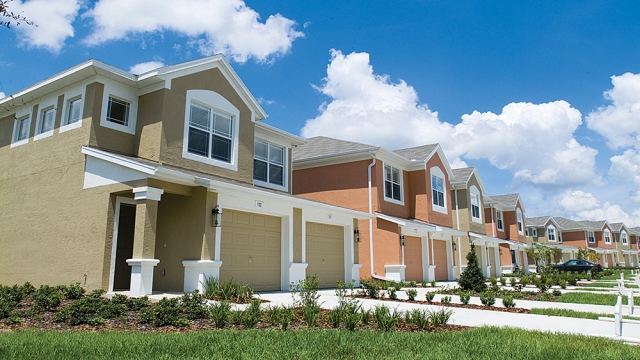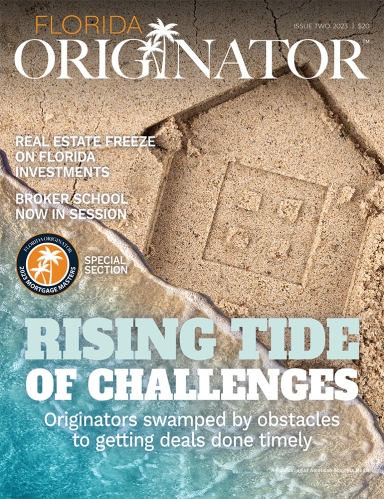In February 2023, the percentage of closed sales of single-family homes that were cash transactions stood at 31.3%. For condos, that figure is much higher, 54.6%. The condo market’s shares of cash transactions declined by 1.8% year-over-year while the single-family home market share of cash transactions has declined by 7.4%, which may indicate a decreasing role of cash investors in Florida’s single-family housing market. This is occurring amidst a sharp decline in mortgage availability.
Wobbling Housing Market
Sales have been on a strong upward path over the past few years, and the 12-month moving average and monthly sales have greatly exceeded their peak value during the housing bubble. Sales growth coming out of the bottom has been on a stronger trend than the pre-bubble housing market, but over the past seven months, the 12-month moving average is declining sharply. This reflects decreasing affordability in the face of the rapid price appreciation over the past several years; the depleted inventory of houses for sale; tighter mortgage credit markets; and higher mortgage rates for those able to get loans. The COVID-19 plunge in sales during April and May pulled down the moving average in 2020, but the immediate post-shutdown rebound was strong, fueled by pent-up demand and record-low mortgage rates at the time.
The housing market in Florida is wobbling a bit under the burden of high prices and rising mortgage rates. Economic and job growth in Florida is forecasted to slow somewhat as the economy enters a recession. More baby boomers continue to reach the end of their working lives and this bodes well for continued population growth via the in-migration of retirees, as well as job seekers to Florida.
We expect this upward trend in sales to resume as increases in the supply of new housing coupled with the recession will dampen price appreciation in an environment with continuing strength in the demographic drivers of housing demand, despite higher mortgage rates.
Median sales prices for existing single-family homes continue to climb since bottoming out in 2011. The double-digit pace of price increases in 2016 and 2017, which eased in 2018 and 2019, resumed in 2020. Over the past year, the 12-month moving average of median sales prices has risen by nearly $48,000.
Low inventories of existing homes for sale and lagging housing starts growth since 2016 contributed to the environment where home prices rose at a rapid pace. The shortage in the single-family market will be partially ameliorated as high prices, due to the rapid appreciation of the past several years, have prompted some sellers to get off the sidelines. However, the recession will result in a slowdown in housing starts. A tight housing market may be a persistent feature of Florida’s economy over the next several years.
This period of unsustainable multi-year price appreciation has ended. The recession, coupled with rising mortgage rates and a last-minute rush of sellers trying to get in before the market cools down, will bring an end to the spike in prices. This may lead to some additional price depreciation but not anything compared to the 2008-09 cycle.
Single-family housing starts in 2026 are expected to increase to slightly over 149,000 after falling to 137,100 in 2024. This 2026 level is 54,000 fewer than the 2021 level of starts.













